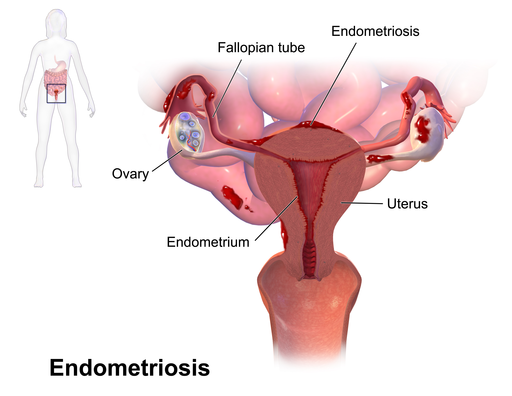(Read about one woman's experience with the disease in "What I Wish Everyone Knew About Endometriosis.")
As some recent news reports have pointed out, though, there may be new hope on the horizon for understanding endometriosis.
 |
| Illustration of endometriosis. Source: BruceBlaus, Wikimedia Commons. |
Endometriosis sufferers can face years or even decades of pelvic pain, inflammation, infertility, and a search for relief. The endometrial tissue can grow in areas like the ovaries, Fallopian tubes, outer surface of the uterus, and pelvic cavity lining. The tissue can form scarring that can cause adhesions between surfaces like the bladder and bowel.
With endometriosis, patients can experience a range of agonizing and potentially embarrassing problems, from pain during sex to extremely painful menstrual cramps, back pain, painful urination or bowel movements, and constipation or diarrhea.
To make the situation even more frustrating, researchers don't understand exactly what the causes of endometriosis are. And patients and even doctors may be reluctant to talk about it.
But as a recent New Yorker article notes, in recent years there's been news of an interesting collaboration that may shed important light on the origins of the disease (the article is well worth reading for its explanation of endometriosis and the issues involved in understanding its causes and treating it).
